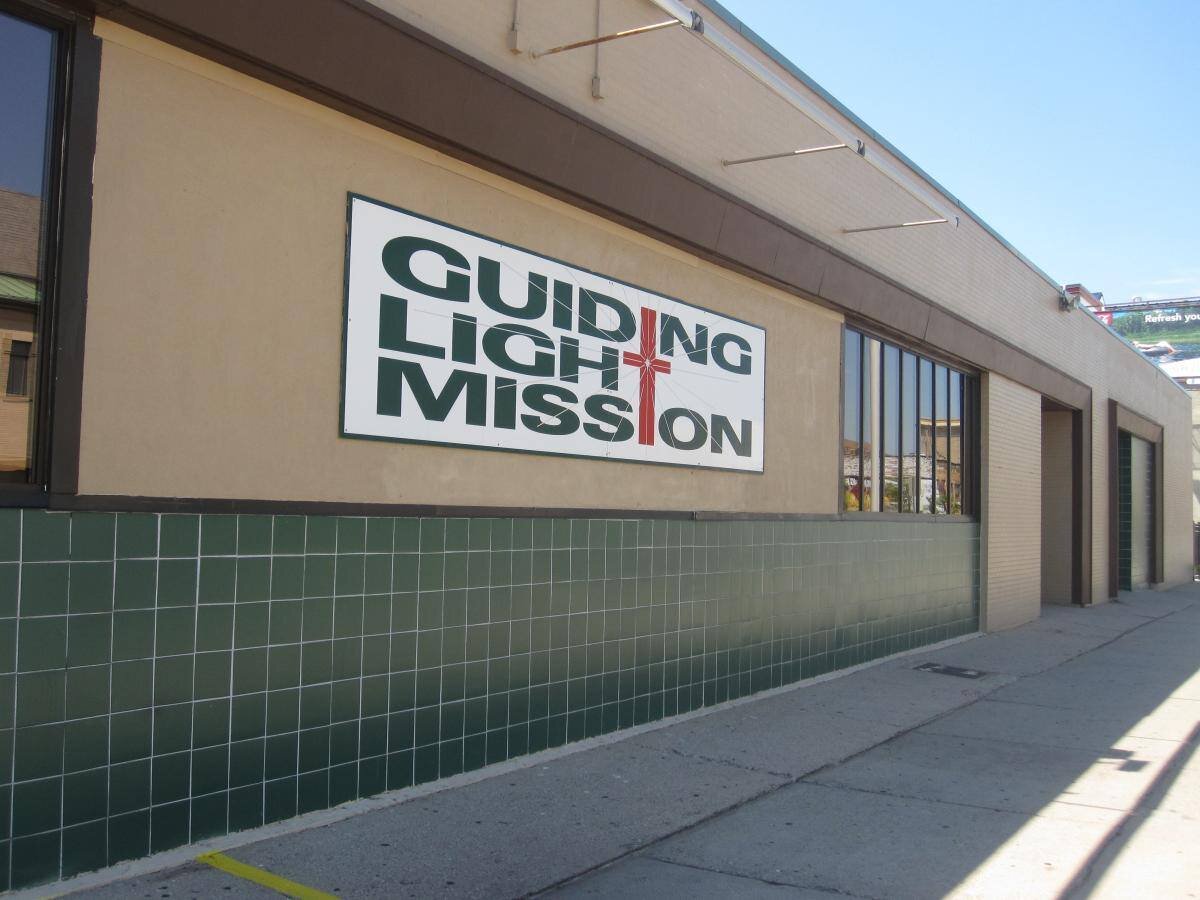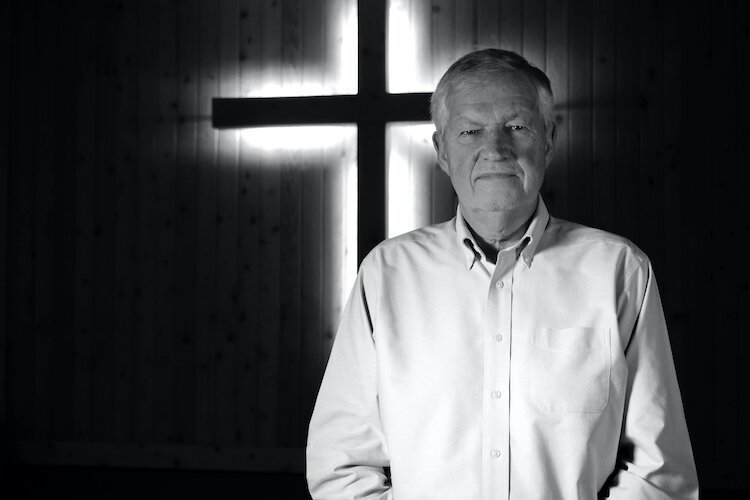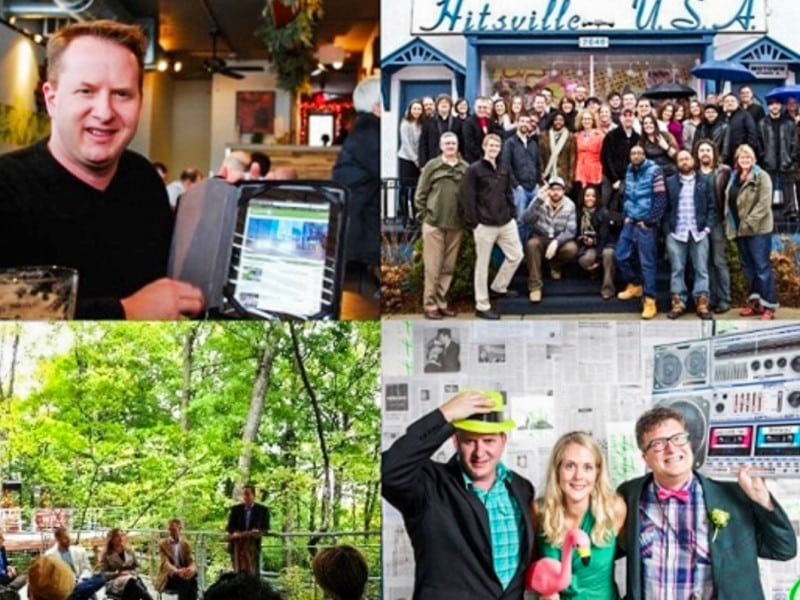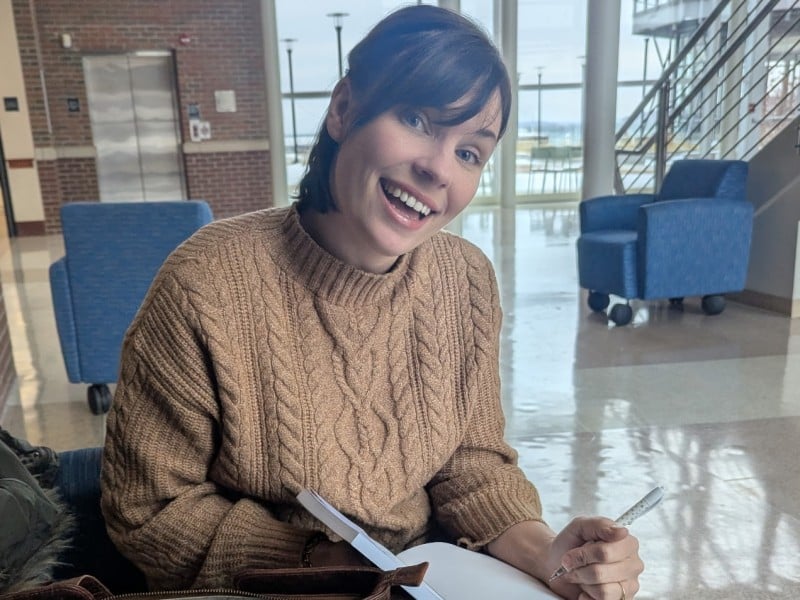Temporary Heartside health center offers COVID-19 care to those experiencing homelessness
A homeless gentleman with a bright idea inspired Guiding Light to offer its 255 S. Division Avenue facility as a temporary coronavirus isolation center in collaboration with Kent County Health Department.
A homeless gentleman with a bright idea inspired Stuart P. Ray to make a bold move in Heartside. The man suggested the Guiding Light executive director use the former Goodwill site at Division Avenue and Cherry Street SE as a temporary coronavirus isolation center. While that plan didn’t initially seem feasible, Ray decided to offer Guiding Light’s 255 S. Division Avenue facility for that purpose. He took the idea to Cherry Health’s Tasha Blackmon, who, in turn, reached out to the Kent County Health Department.
Last weekend, Guiding Light staff emptied the building that houses its employment and recovery programs so that medical equipment and furnishings could be brought in. On Tuesday March 31, the COVID-19 isolation center opened. Staffed by 18 nurses and equipped with needed medical equipment from the Kent County Health Department, the building’s 24 private rooms, six bathrooms, bunk area, chapel, and full-service kitchen will provide space for caring for the sick among the homeless population while also safeguarding the greater community.
“Anyone who has any concerns about their health and well-being in the Heartside community can have access,” says Guiding Light executive director, Stuart P. Ray. “Rooms are set up in case somebody is diagnosed with the virus.”
If someone who is homeless contracts the novel coronavirus, he or she can be taken care of there with proper medical equipment and personnel.
As Ray and his staff watched the pandemic unfold around the world, they realized that densely populated neighborhoods with large homeless populations, like Heartside, were at the epicenter. When the virus showed up in Iran, they prepared to work remotely, shelter in place, and stopped doing intake.
“We knew if we got the virus inside the building, we had no way of protecting anybody,” he says.
Ray estimates that about 1,000 homeless Heartside neighbors lack access to media. Many struggle with mental health, substance abuse, and immune deficiency issues. All lack access to basic sanitation. Because they are highly mobile and may not understand the need for social distancing, they continue to make many close social contacts throughout the day.
Ray says that the pandemic shines a light on the failures the community has made in resolving homelessness.
“This is a community built on a sense of collaboration. That’s how this city became great,” Ray says. “Today, for whatever reason, that has not translated to social well being in this community.”
When Ray came to Grand Rapids in 2009 to lead Guiding Light, he says that the community had about $40 million budgeted for the homeless.
“There is no lack of resources in this community. There is a lack of collected visions, what it is we could create,” he says. “A lot of money gets sent to the top and not as much resources get to those who need it. It’s not a lack of resources. It’s how we allocate the resources.”
He is upset seeing local businesses pay less than a living wage while enrolling in programs that make government assistance available to employees.
“This makes no sense. Why don’t we just pay the employees instead of hiring people to give them the benefits,” he says. “From the wages and housing standpoint, what we continue to do, and again it’s human nature, is to take care of our little corner. ‘My little turf.’”
As housing becomes more expensive and wages lag behind, families have become a fast-growing sector of the homeless population. That failure to address homelessness is one factor raising risks as the pandemic spreads.
“They are all scared to death,” Ray says. “Too many families in this community are forced to live from paycheck to paycheck. If you lost your job last week, like 3 million other Americans, you’re now figuring out whether to pay the rent or feed the kids and you got to get back in that food line again. Children pick up on the stress, they are not in school, and that is not good for them.”
In communities across the nation, the coronavirus is a wake-up call. Some, like Guiding Light, are picking up. Other Heartside agencies responding to the pandemic include Degage Ministries, which has increased hours and services provided to women. God’s Kitchen is handing out box lunches to reduce contact among those coming for meals. Mel Trotter Ministries has moved families residing within their facilities into local hotels to ensure their health and safety.
However, as Ray notes, communities need support from the top to create needed change. While he applauds Governor Whitmer’s efforts, he has little enthusiasm for what is happening on a national level. He recalls a lesson he learned from a former colleague, the late Richard Rockefeller, son of the billionaire and prominent philanthropist David Rockefeller.
“As long as we continue to have polarity between the haves and the have-nots, it’s going to be problematic for America,” he concludes. “In some respects, Washington has sentenced 25,000 people to death. I just don’t get that.”
Meanwhile, Guiding Light and the Kent County Health Department are doing what they can. Adam London, administrative health officer at the Kent County Health Department, noted that the coronavirus isolation center is an important public health intervention that will save lives.
“Guiding Light Mission has always been a valued partner, but now more than ever, we appreciate their collaboration, their sacrifice and their generosity,” he says. “Our goal is to provide a safe place for people who are experiencing homelessness to recover from the coronavirus and to keep the transmission of the virus to a minimum by isolating those with the infection.”
Written by Estelle Slootmaker, Development News Editor
Photos courtesy Guiding Light.










